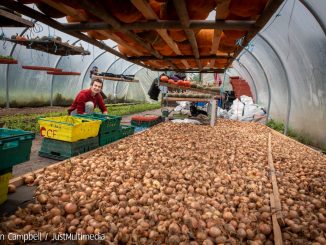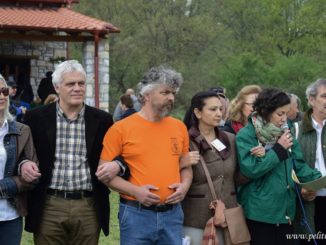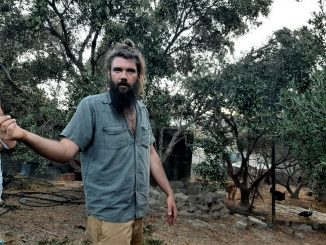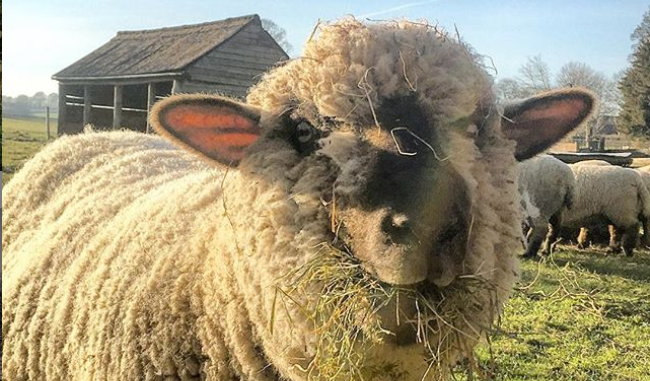
The New Year gets off to an exciting start with the Oxford Real Farming Conference on January 5th-7th 2022. Back online this year, the conference has added social justice strings to its bow with new partners that focus on land rights and equality. As well as the traditional menu of sessions on sustainable farming practices and policy, food sovereignty and supply chains, the event will bring in indigenous perspectives from around the globe. Ursula Billington reports on what not to miss.
There’s a greater emphasis on land rights, equality and social justice at this year’s Oxford Real Farming Conference (ORFC), courtesy of new partners Land in Our Names and Shared Assets. A substantial global programme will offer insight into indigenous practices, with 25 speakers from round the world. Meanwhile long-time ORFC partners the Soil Association and Pasture for Life have put together a programme of grounded farm practice sessions covering everything from livestock to beekeeping and mushrooms, whilst the Landworkers Alliance present critical discussions around food sovereignty and supply chains, and Sustain convene panels on policy.
View the full programme
Kicking off on Wednesday 5th January 2022, ORFC’s packed programme includes 135 sessions over the three days of the conference, wrapping up on the evening of Friday 7th January.
Now in its 13th iteration, ORFC is the highlight of the UK’s agroecological calendar. Food and farming enthusiasts from all walks of sustainable, organic and regenerative practice – activists, farmers, policymakers, scientists, economists – convene to share knowledge, discuss hot topics and show solidarity.
Back online for a second year, audiences worldwide will be able to view their pick of sessions from the comfort of their own homes. (For now those all-important conversations in corridors will have to wait.)
Book tickets here
It’s going to be a busy few days which will doubtless leave attendees buzzing with new ideas, knowledge and enthusiasm for the year ahead. Here are a few sessions not to miss.
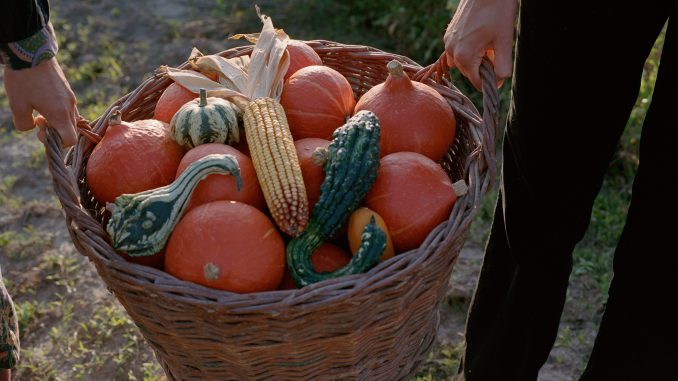
Farming
Gene Editing And Agritech: How Does It Fit With Agroecology?
The phrase ‘know your enemy’ springs to mind here. Though speakers from Beyond GM, Whole Health Agriculture and Assess Technology/ETC Group aim to untangle assumptions about agritech and explore whether there is a valid role for technology development within agroecology, there’s a sense they’re prepared for scepticism. Nonetheless, the session could provide valuable insight into policy support for deregulation of gene editing, and any potential benefits of so-called ‘agroecotech’ – big data, AI robotics, cell-cultured foods, vertical farming – for the scaling of agroecology. The session is interactive so there’ll be a chance to share views, and air any confusion or conflicts of opinion arising around this issue.
What Is Needed To Get Us To A Pesticide-Free Future?
This meeting of a handful of the great and good of the UK’s sustainable farming movement will present the opportunities and challenges around achieving pesticide reduction in farming, including the external policy context, why nature needs us to act now, and practical suggestions for pesticide reduction in regenerative agriculture. Beccy Speight, RSPB Chief Executive, and Vicki Hird, Sustain’s Farming Campaign lead, are joined by nature-friendly farmers Patrick Barkham, Martin Lines and John Pawsey who will shed some light on their personal methods and practical solutions for pesticide-free farming.
Restorative Continuous Cropping Using Heritage Cereals: How To Produce All The Grain We Need Without Destroying The Planet
A chance to see conference founder/organiser Colin Tudge in action, as he outlines a practical restorative agroecology strategy for heritage grain growth that yields 3x more than a modern organic variety. Recreating the resilient, productive and adaptable crops of the ancestors enables farmers to bypass the agri-chemicals and fossil fuels synonymous with modern monocultural grain growing. Tudge is advocating for a paradigm shift to enable rewilded cereal fields, reduced carbon footprints, sequestered carbon in healthy soils and enough grain to feed the planet.
From Field To Fibre: Is ‘Regenerative Fashion’ The New Frontier In Farming?
A hot topic in sustainability circles and gaining attention amongst consumers and producers alike, regenerative fashion is being considered as the next big solution to the climate and ecological crises. The term is still being discussed and honed, but generally starts from the sourcing of fibres from regenerative agriculture and includes local processing and garment production, where the dominant global system generates vast amounts of carbon, degrades soil and is at the heart of many serious social and health problems for farmers and labourers. Here a diverse range of panellists will discuss how regenerative fashion looks across various different markets and what can be done to swell the movement.
Agroecology & the Custodial Ethic
Australia is known for its government’s climate and ecology-damaging policies including support for conventional agriculture; what is perhaps less well known is the agroecological movement emerging in response and rapidly gaining strength across the country. The movement encourages the use and sharing of indigenous land working practices, in what is called a ‘deepening custodial ethic’ that is increasing agroecosystem biodiversity at all levels whilst pursuing wider social and political shifts such as land tenure reform, increased food sovereignty and decolonisation of agriculture. Identifying as ‘the new peasantry’, members are keen to move away from damaging capitalist structures, replacing dominant models with circular bioeconomies; focus on rare and heritage breeds; solidarity economics such as Community Support Agriculture; and the enactment of degrowth business initiatives.
The session looks set to be a thoughtful and enlightening window into Australia’s breaking dawn of agroecology.
Sharing Tools and Machinery In Welsh Horticulture: A Blueprint For Cooperatising Farming Resources
A useful stop for those facing challenges in accessing appropriate machinery or infrastructure, or land workers interested in exploring an alternative model of support for small to medium-scale land operations, short supply chains and local markets. The session will offer practical insight into cooperative working and farm resource-sharing, with findings from farmer workshops in Wales delivered by the Landworkers’ Alliance Cymru, Sustainable Places Research Institute, and Seed Sovereignty Programme UK & Ireland.
Science, Biodynamics and Regenerative Agriculture
Biodynamics has long been practiced across Europe as an alternative to mainstream growing, but many have remained sceptical of its efficacy. Now, research is beginning to demonstrate the validity of biodynamics as a nature-friendly farming method, and the science behind its successes. Evidence shows, for example, that biodynamic practices significantly increase the diversity and abundance of soil microbiota and that keratin found in cows’ horns may provide a hub for the development of beneficial mycorrhizal fungi, some of which are essential to crop plants. Panellists will divulge the scientific findings that could provoke a more mainstream shift towards biodynamics and regenerative farming in general.
Activism & Public Policy: Cross Pollination to Support Urban Agriculture
2021 has seen a focus of attention on the health of city dwellers, supply chain security, local food sovereignty and the importance of equal access to urban green space. Growing support for sustainable food production in cities has enabled initiatives such as Sustain’s Peri-Urban Agriculture project to take off. Yet relevant public policies are still weak and most citizens remain disengaged in the local food debate. This timely session will explore how the movement can increase the presence of regenerative food growing in urban settings, for the benefit of people and environment. A panel of specialists from various countries will discuss how activism and public policy can work together to make our cities healthier and more nature-friendly.
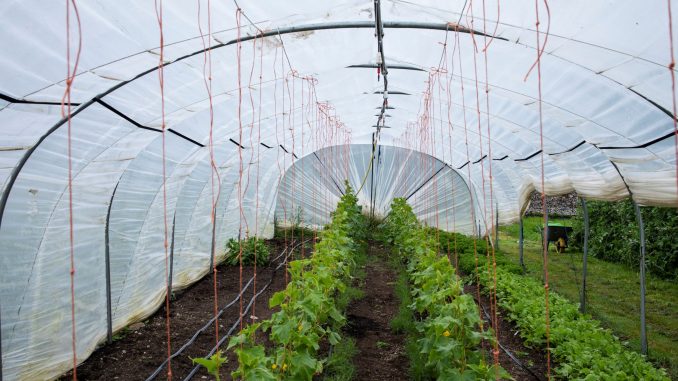
Food
Exploring The Soil Food Web Through Science and Traditional Knowledge
A chance to hear globally renowned US soil microbiologist Elaine Ingham speak on the Soil Food Web. Her previous appearance at ORFC seven years ago is still the most popular online video in the conference archive, with over 200,000 views. This time, Dr. Ingham is joined by her former students now putting their knowledge into practice in different ways: running the UK’s Soil Ecology Laboratory, supporting conventional farmers in the transition to organic and regenerative agriculture; and setting up Growing Point in New Zealand, a community garden combining science and mātauranga Māori knowledge with research systems for healing soils, food systems and Papatūānuku or Mother Earth.
Healing our connection with food in the fake food era
Dedicated advocates for a Symbiocene revolution will not want to miss Vandana Shiva and Satish Kumar in this “ecological act of defiance of the false solutions that separate us from life and nature.” The soul-parents of the earth protection movement will speak on the transformation of food from essential life-giver to commodity and cause of global environmental degradation, ill health and inequality. They will discuss the latest trend for ultra-processed food products that “represent a fusion between new biotechnologies, hyper-processed food, and the industrial billionaires that control the agrifood chain” whilst claiming to solve the climate and environmental crises; and will underline the importance of “giving back to the Earth and becoming part of the natural cycles that sustain all life” in order to support nature-friendly farmers, local markets, indigenous knowledge and practices, and to validate the solutions offered by the agroecological food movement.
What Counts in Deciding Who Feeds the World? A Workshop to Examine the Downgrading of the Contribution Made by Small Farmers
This year, the UNFAO published estimates suggesting smallholder farmers feed only 1/3 of the world. Pat Mooney, author of the 2021 report A Long Food Movement: Transforming Food Systems by 2045 (read my interview with Pat here), joins Jyoti Fernandes of the Landworkers’ Alliance, to discuss this new evidence in light of previous reports that 70-80% of the world is fed by peasants, smallholder farmers, fisherfolk and livestock keepers. Drawing on a range of global perspectives, they will consider whether small-scale food production really is in decline, or whether this may be a “clever tactic” to manipulate the debate by mega-corporations and agribusiness.

Photo credit: We Feed The World
Social & environmental justice
The Success of the Indian Farmers’ Struggle: The Global Significance
Pritam Singh will represent Indian Farmers – more than 40% of the country’s population – in this presentation on the yearlong protests which ultimately resulted in Prime Minister Narendra Modi issuing a repeal of the three controversial laws that farmers believed would ruin their livelihoods. The campaign and its success have touched people around the world.
Regenerative Women On The Land: Why Are Women Leading With The Land?
Four women share stories of working the land as people with a unique connection to its cyclical nature. There has been a 10% increase in female farmers in the UK in the last 10 years, prompting instigation of the ‘Regenerative Women on the Land’ group this year. The session will consider how knowledge unique to women can be integrated into farming, to promote regenerative and diverse methods that work with the cycles of the land and seasons, rather than against them. It will also explore ways of supporting and welcoming more women into the world of farming.
Growing Hemp With Or Without A License
The groundswell of support for hemp farming in the UK has occurred in defiant contravention of government policy. Here co-founders of Hempen, pioneers of the UK’s hemp industry, will share their rationale behind the drive to grow the crop, a multi-faceted solution to current ecological crises, without government permission. They’ll outline their direct-action campaign to instigate mass hemp growing without Home Office licenses in order to ‘Overgrow the Regime.’ A British hemp farmer will share findings from her Nuffield Farming Scholarship research into best hemp farming practices in the UK and internationally.
Climate Justice is a Distraction from Racial Justice: African Heritage Horticulture
An interactive journey exploring African heritage, horticulture and herbalism. In a wide-ranging discussion, three community garden and allotment founders share experiences of teaching growing skills in London schools and nurseries; educating women of African and Caribbean heritage on land cultivation, food production and sustainable enterprise; the use of heritage to tell stories of sustainability; preserving traditional growing practices; growing black heritage foods and healing herbs; and creating safe, autonomous green spaces for BPOC social prescribers.
Speakers will cover environmental impacts on the diaspora, the politicisation of the black body and “what solutions can achieve in a world where sustainability merely slows down affliction but doesn’t heal it.” They hope participants will come armed with questions and experiences to share, and leave with a vision of a new, regenerative world.
More on real farming
Letter From The Farm | Rasputin The Ram & The Ethics Of Lamb For Easter Dinner
Agroecology Can Shape and Transform EU Food Systems – Joint Policy Paper
Heard (of) Farmerama? Amplifying the voice of the smaller farmer



